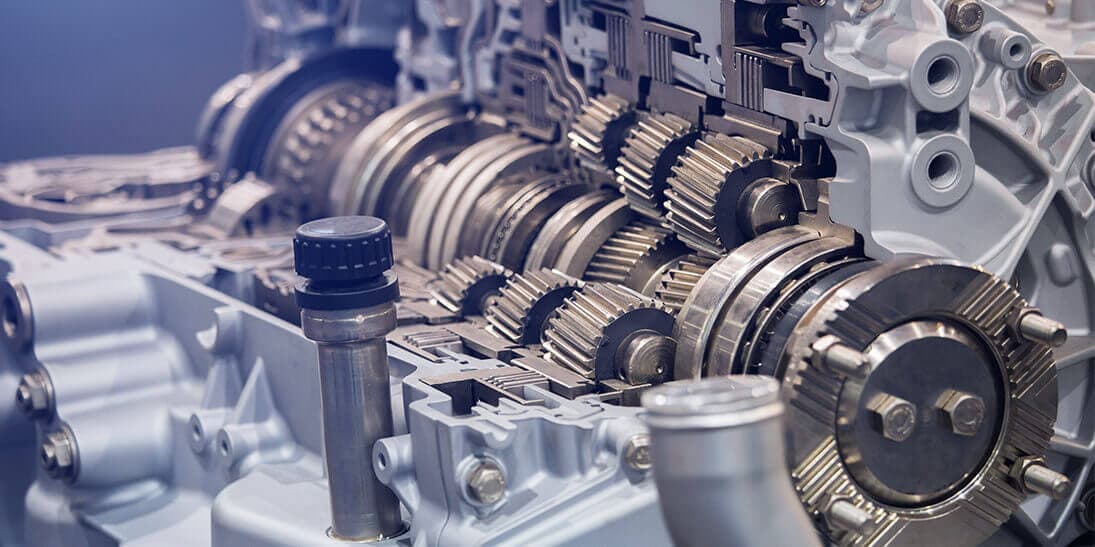When it comes to vehicle maintenance, one of the most critical components to keep in optimal condition is the transmission. The transmission is responsible for shifting the vehicle’s gears, ensuring smooth operation and efficient power transfer from the engine to the wheels. Over time, transmissions can experience wear and tear, which may lead to costly repairs or replacements. Fortunately, transmission rebuilders specialize in diagnosing, repairing, and restoring transmissions, offering a cost-effective solution for vehicle owners. In this article, we’ll delve into the role of transmission rebuilders and how they help extend the lifespan of vehicles.

What Does a Transmission Rebuilder Do?
A transmission rebuilder is an expert in the disassembly, inspection, repair, and reassembly of vehicle transmissions. Rather than replacing an entire transmission unit, they carefully restore the existing one to its original performance level. This process involves transmission rebuilders near me replacing worn-out or damaged components, cleaning the transmission’s internal parts, and reassembling it to function like new.
Why Transmission Rebuilds Are Necessary
Over time, vehicles experience wear and tear, and the transmission is no exception. Whether due to age, lack of maintenance, or driving conditions, various issues can arise, such as slipping gears, rough shifting, or fluid leaks. A transmission rebuild is an excellent option for addressing these problems without the need for a costly transmission replacement. The rebuild process allows vehicle owners to keep their current transmission in service, saving money while restoring the vehicle’s performance.
Benefits of Choosing a Transmission Rebuild
- Cost Savings: Rebuilding a transmission is often much cheaper than purchasing a brand-new unit. Since many of the internal components can be reused, it’s a more affordable alternative to complete transmission replacement.
- Restored Performance: A well-done transmission rebuild can restore your vehicle’s transmission to nearly its original state, helping it run more smoothly and efficiently. This can improve fuel economy, driving comfort, and overall vehicle reliability.
- Extended Vehicle Life: A properly rebuilt transmission can significantly extend the life of your vehicle, delaying the need for a full transmission replacement.
- Environmental Considerations: Rebuilding a transmission helps reduce the environmental impact by reusing many of the original parts, thereby decreasing the demand for new manufacturing.
The Transmission Rebuilding Process
Transmission rebuilding is a detailed and intricate process, typically involving the following steps:
- Initial Diagnosis: A transmission rebuilder begins by diagnosing the issue, whether it’s slipping gears, unusual noises, or erratic shifting. This step is crucial to pinpoint the root cause of the problem.
- Disassembly: After diagnosing the problem, the transmission is carefully disassembled. Each internal part is inspected for signs of damage or wear.
- Cleaning: Once the transmission is disassembled, the individual components are cleaned to remove dirt, debris, and any sludge that may have accumulated. This step ensures that the parts are in good condition before reassembly.
- Replacement of Worn Parts: Any worn, damaged, or faulty components are replaced with high-quality, OEM (Original Equipment Manufacturer) parts. This might include gears, seals, bearings, or clutches, which are essential for smooth operation.
- Reassembly: After all the necessary repairs are made, the transmission is carefully reassembled, ensuring all components are properly aligned and functioning.
- Testing: Before reinstalling the rebuilt transmission into the vehicle, the technician performs rigorous testing to ensure the transmission works correctly, shifts smoothly, and does not exhibit any signs of malfunction.
Signs You Need a Transmission Rebuild
Transmission issues can often go unnoticed until they become serious. However, some common signs that may indicate a problem with your transmission include:
- Slipping Gears: If your vehicle unexpectedly changes gears, struggles to stay in gear, or exhibits erratic shifting, it could be a sign that your transmission is failing.
- Unusual Noises: Grinding, whining, or clunking noises when shifting gears may indicate that your transmission is having trouble with its internal components.
- Delayed or Rough Shifting: Difficulty shifting gears or hesitation when changing gears could point to an issue with the transmission’s functionality.
- Fluid Leaks: A transmission fluid leak may indicate a damaged seal or gasket that requires attention.
Choosing the Right Transmission Rebuilder
Not all transmission rebuilders are the same, so it’s essential to choose a reputable and experienced professional. Look for rebuilders who:
- Have extensive experience with the type of transmission in your vehicle.
- Offer warranties on their work, indicating confidence in their skills.
- Use high-quality parts to ensure the rebuilt transmission performs like new.
- Provide clear communication and take the time to explain the rebuilding process and your options.
Conclusion
Transmission rebuilders play an essential role in restoring the heart of a vehicle’s drivetrain, ensuring smooth performance, reliability, and longevity. When faced with transmission problems, opting for a rebuild rather than a replacement can save money, provide excellent results, and contribute to the overall well-being of your vehicle. By choosing the right transmission rebuilder, you can enjoy many more years of efficient driving and keep your car running smoothly.
